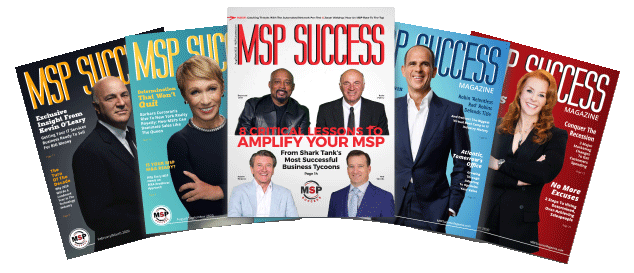Remember when Bud Light attempted to reinvigorate its dying brand by hiring the transgender comedian Dylan Mulvaney to star in one of their ads to celebrate her 365 days of “being a woman?” The backlash was immediate and harsh, with a call for boycotts, and sales reportedly dropping a whopping 30%. I’ve also heard (not verified) that bar sales dropped 50%. Even Kid Rock posted a video on YouTube that went viral of him shooting up a case of the beer in an open field as a giant middle finger to the brand’s decision. As Dylan would say, “Oopsie!”
In an interview, Bud Light’s VP of Marketing, Alissa Heinerscheid, explained why she did it. “This brand is in decline, it’s been in a decline for a really long time, and if we do not attract young drinkers to come and drink this brand, there will be no future for Bud Light.”
But the real misstep of the marketing department was revealed in a video the VP of Marketing posted, explaining why she ran the ad. In the video, she conveys disdain for their current base of customers, saying the brand needed to “move away from fratty and out-of-touch humor” as a means for being more inclusive (because those young frat-boy sons of bitches don’t drink beer?) and went on to say that female representation in the world is a personal passion of hers.
Here are my thoughts on the matter because there’s a HUGE marketing lesson here, and one that many businesses make, not just Bud Light.


First, marketing is NOT supposed to be “inclusive.” Marketing is about picking a single, particular type of customer and crafting something that is EXCLUSIVELY for those people. The first peg in the marketing board is the “WHO” question. Who is your most likely to buy, high-value customer? Who’s buying your services right now and why? Bud Light’s strategy of using a transgender person applied to a modern, edgy cosmetics company or clothing line might have been a brilliant move. But to the drinkers of Bud Light? Dumb. I’m not a beer drinker and even I know that.
When you change your brand to be more “inclusive” of those who do NOT currently use your product, you ignore the entire base of customers who are supporting you and got you to where you are.
If they wanted to reach a different audience with a radical departure from their core audience, they should have created an entirely new brand, without the Budweiser name on it, that was designed for and aimed at the LGBTQ audience and supporters. Companies do this all the time for this very reason. Coca-Cola owns over 200 brands of drinks, from Powerade to Costa Coffee.
Unless you knew Fairlife milk was a Coca-Cola brand, you’d never guess it from the marketing or packaging. They do this to intelligently design a product for a specific audience vs. a marketing mistake I constantly rally against: trying to create a brand/product/service that attempts to appeal to everyone.
Second, marketers cannot allow their personal passions, biases and beliefs to influence their decisions on how a brand is marketed. If you cannot separate your personal feelings from your marketing choices, you’re doomed to fail. The only feelings that matter are those of the people buying your product, period. If your beliefs align, perfect.
But if not, you have to be able to set aside YOUR biases and develop tactical empathy in order to succeed. That’s why MEN are responsible for creating some of the most successful ads for women – they don’t have to be a woman to understand how a woman thinks, feels, makes decisions and buys.

In the VP of Marketing’s message defending why she did what she did, I didn’t hear her say anything about doing market research with core customers to understand who they are, and to then make shifts in the marketing and advertising approach. Who does their core audience look up to? Admire? Hire that person to represent your brand.
Finally, you have to know that using your company to make political statements or to take a controversial stand can be extremely risky IF you aren’t ultra clear on the views of your audience and attempt to take a position they are opposed to. Black Rifle Coffee designs very political, polarizing commercials because that’s part of their brand. They’re all in, and it works for them as proof they currently have a $250 billion valuation.
Nike is another example of taking a polarizing, political stance by embracing and supporting Black Lives Matter as well as Colin Kaepernick taking a knee. It offended many, but their brand is stronger for it, clearly demonstrating they understand their audience. In a “sea of sameness,” taking a political stance can certainly be a way to differentiate and align with a particular segment of the marketplace, but it has to be at the core of your strategy, not something you do occasionally because it’s popular or because you feel pressured into doing it. And certainly not to attempt to win brownie points for virtual signaling.
Before I continue, if you want to hear from CEOs who are not royally screwing up and instead are making decisions that generate MILLIONS of dollars, you should watch all the interviews with the Titans of the MSP Industry. You can click here to get them.
Now, let me give you a different perspective and show you where I applaud their marketing department for this decision…
For starters, we’re ALL talking about Bud Light now. Yes, it’s not in a positive light, but now everyone’s eyes are on the brand. As P. T. Barnum once said, “There’s no such thing as bad publicity.” The question is, what will they do with it? So far, the only thing they’ve done is put out a cheesy “God bless America” commercial that is so full of trite American icons and symbols that it’s cringy. They’re floundering.
Further, I applaud the risk-taking of introducing something radically new. Marketing is not an exact science because we’re dealing with people, and people are emotional, irrational beings. Heinerscheid took a risk. Now, to be clear, it was a blind risk because it’s not apparent to me that she did any test marketing to see what the response would be before going mainstream with the idea.
Perhaps she did, but she didn’t use that as a defense for why she took the approach she did, and that would have been a very viable argument. That said, sometimes you have to take a risk and do something edgy to get fresh attention. As my mentor Dan Kennedy always said, the #1 sin in marketing is being boring.
I would also add that while the VP of Marketing is getting all the heat, the executives are just as guilty and, in my opinion, cowards for not stepping up in taking the blame. Either they were totally and completely irresponsible leaders in not reviewing their marketing department’s suggested strategy and campaign, letting that department run amok without direction, or they saw it and were in complete agreement with the ad running. They ALL should take a leave of absence – not just the VP, as was recently reported. They were also the ones who hired her and directed her goals and approach.
Another principle I teach: Marketing is NOT a department. It is the entire strategy you use to attract, keep and fully monetize your clients. As the CEO of your business, everything you decide, from how much you charge to who you hire IS a marketing decision. Your decisions are tightening the relationships you have, delivering value to your clients as they define value, not as you define value and moving people to buy or they aren’t. There’s no neutral.

In the end, they would be better served to go back to “frat humor” commercials if they want to win back the audience that was buying the product. The beer industry has a long history of successful campaigns, and ALL of them have a masculine theme of frat humor, bar and party scenes and men being men. You don’t have to like it, but that IS what sells beer.
I often have run into clients who do not like my style of marketing. They feel it’s too hokey, too salesy, too “pedestrian” for their sophisticated clientele. Nuts. The marketing I produce SELLS, period. If your North Star for marketing is tangible results, you should never allow your personal preferences to win over what works.
The Budweiser Frogs commercial that ran in the ’90s was one of the most successful campaigns of all time, not only for Budweiser, but for all beer brands – proof that you can be engaging and sell products without being political. My advice to Budweiser: Bring on the commercials with crude jokes about bodily functions, inappropriate childish humor and hot chicks…just make sure they don’t have a penis. Get back in touch with your audience.
Want business advice from 8-Figure MSPs running successful businesses? Hear from the Titans of the MSP Industry: https://mspsuccess.com/titans/






